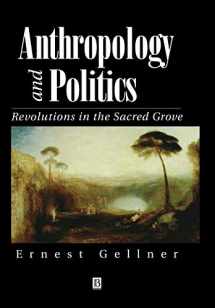
Anthropology and Politics: Revolutions in the Sacred Grove
Book details
Summary
Description
Ernest Gellner explores here the links between anthropology and politics, and shows just how central these are. The recent postmodernist turn in anthropology has been linked to the expiation of colonial guilt. Traditional, functionalist anthropology is characteristically regarded as an accessory to the crime, and anyone critical of the relativistic claims of interpretative anthropology (as Ernest Gellner is) is likely to be charged (as he sometimes is) with being an ex post imperialist.
Ernest Gellner argues that cultures are crucially important in human life as constraining systems of meaning. Cultural transition means that the required characteristics are transmitted from generation to generation, leading, he shows, to both greater diversity and to far more rapid change than is possible among species where transmission is primarily by genetic means. But the relative importance of semantic and physical compulsion needs to be explored rather than pre-judged. The weakness of idealism, which at present operates under the name of hermeneutics, is that it underplays the importance of coercion, and that it presents cultures as self-justifying and morally sovereign: this line of argument, the author demonstrates, is fundamentally flawed.


We would LOVE it if you could help us and other readers by reviewing the book
Book review



